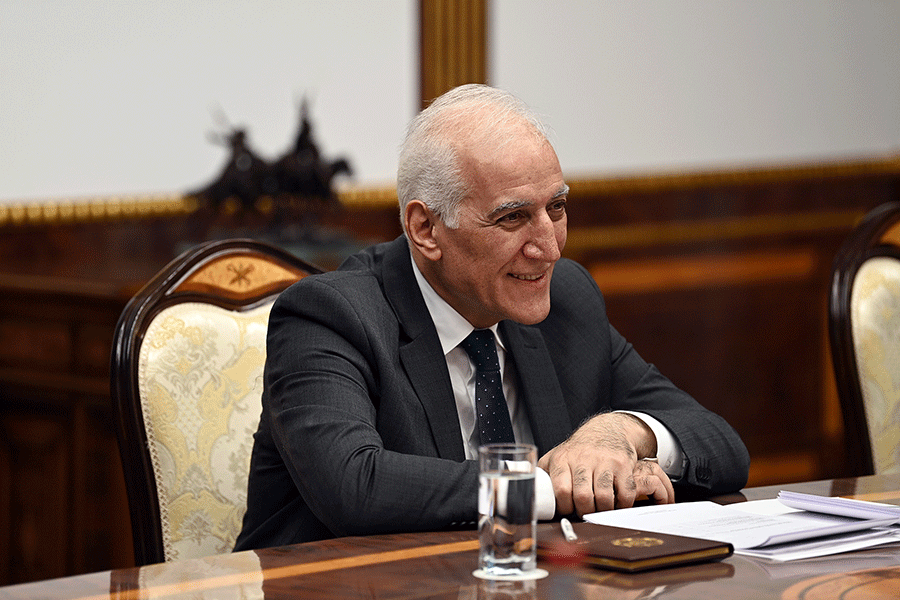By Harut Sassounian
After Prime Minister Nikol Pashinyan and High Commissioner for Diaspora Affairs Zareh Sinanyan have burned almost all bridges between Armenia and the Diaspora, now the President, Vahagn Khachaturyan, is completing the damage.
In late May, during an interview with foreign journalists attending the government forum, “The Yerevan Dialogue,” Khachaturyan made disparaging remarks about the Diaspora. Santiago A. Farrell, International Editor of Argentina’s daily newspaper Perfil, published the President’s comments on June 22, 2025:
Read also
“The Republic of Armenia seeks to gain prominence in Latin America, convinced that, despite the presence of significant [Armenian] communities in some of its countries, its position on the Turkish genocide and the centuries-old conflict with its neighbor Azerbaijan have not been understood in the region, which has in the past turned its back on it in international forums. Perhaps the [Armenian government’s] mistake was leaving the management of diplomatic relations, in countries with a significant Armenian presence [Argentina and Uruguay], in the hands of the Diaspora.
“Turkey and Azerbaijan have gone down a different path, the other way around, establishing diplomatic relations and gaining a presence in Latin American countries. We feel we don’t receive support from Latin American countries on many international platforms. The problem was that we paid too much attention to countries with Armenian communities and less attention to those without.
“Turkey and Azerbaijan are very well represented [in Latin America], and therefore have the opportunity to make their views known on the issue of Nagorno-Karabakh.”
Here are Khachaturyan’s errors:
1) He wrongly claims that Armenia’s position on the Armenian Genocide and its conflict with Azerbaijan are the reasons for Armenia’s poor relations with South American countries. In reality, several South American countries maintain strong ties with Armenia thanks to their local Armenian communities. None have turned their backs on Armenia, and many have formally recognized the Armenian Genocide. Moreover, it is incorrect to describe the conflict with Azerbaijan as “centuries old,” since that country has only existed for just over a century.
2) He wrongly views Armenia’s ties with the Diaspora as a liability rather than an asset. Most countries fortunate enough to have influential Diasporas actively leverage them to open doors and facilitate high-level introductions to government officials.
3) If some of Armenia’s ambassadors are too incompetent to carry out their diplomatic duties, it is not the fault of the local Armenian communities. Armenia’s leaders are the ones who often appoint their unqualified friends or political supporters for important diplomatic posts. What little some of Armenia’s ambassadors accomplish is mostly due to the contacts established by the local Armenian communities.
4) In several countries, Armenian communities are the primary reason governments maintain friendly relations with Yerevan. Without their activism and lobbying, many foreign capitals would lack both incentive and awareness to support Armenia. The Armenian communities in the United States, Canada, France, Argentina, Uruguay, United Kingdom, Greece, Lebanon, Iran, Russia, and Australia have encouraged their host government’s positive policies toward Armenia.
5) While it’s true that Azerbaijan and Turkey maintain more embassies in South America than Armenia, the local Armenian communities’ influence far outweighs that of Ankara’s or Baku’s envoys, lacking comparable grassroots support.
When Khachaturyan visited Adana, Turkey, in 2011, he caused an uproar by declaring, “We are ready to ask for Turkey’s forgiveness for the bloody clashes in the region, particularly for ASALA. In the name of Armenia, we ask for Turkey’s forgiveness.” The Republic of Armenia has no reason to apologize for ASALA’s actions, which had taken place prior to Armenia’s independence.
Khachaturyan’s disparagement of the Diaspora aligns with Prime Minister Pashinyan’s controversial remarks on June 20, 2025, in Istanbul, when he downplayed his own 2019 declaration — “Artsakh is Armenia. Period” – by claiming: “I used those words in 2019 because I was patriotic. I was responsible for all Armenians. I was being told that I am the Prime Minister of all Armenians. Such concepts of patriotism gave us all the disasters.” He continued: “We are not the author of the patriotism that we carry in our heads.” He said: “the Prime Minister is not responsible for all Armenians. Do not put your trust in me. You solve your own problems in your communities.” Such rhetoric follows his earlier public denouncements of Mt. Ararat, the national anthem and emblem, the Armenian Church, Armenia’s past, and Artsakh.
Furthermore, Pashinyan’s appointee Zareh Sinanyan, as High Commissioner for Diaspora Affairs, has systematically undermined Armenia’s relations with the Diaspora, instead of strengthening them.
Armenia’s officials have an obligation to cultivate positive, productive ties with the Diaspora: invite them to visit, invest, and relocate to Armenia, tap their expertise, and welcome their contributions to nation-building. The Diaspora remains one of Armenia’s greatest strategic assets and deserves to be embraced with open arms, not disparaged.




















































